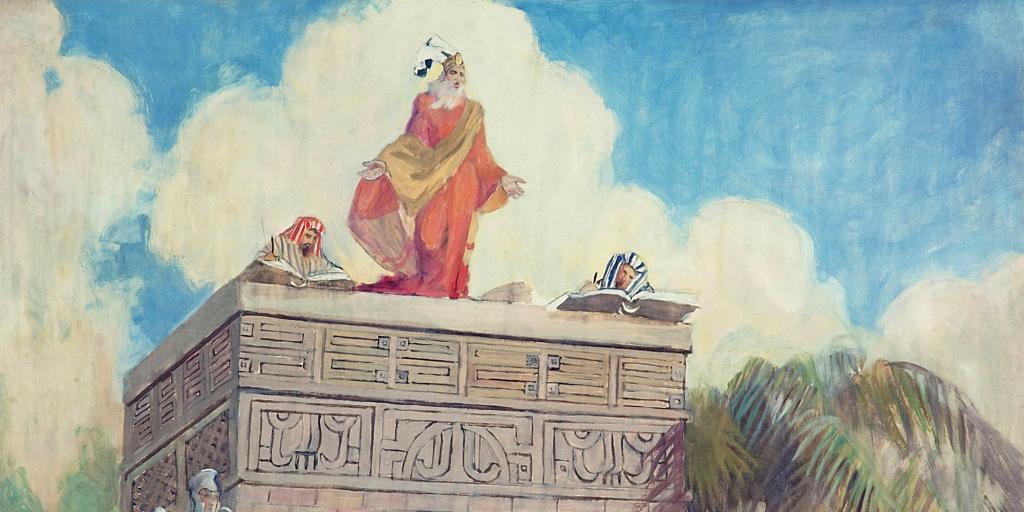
Notes from John W. Welch, et al., eds. Knowing Why: 137 Evidences That the Book of Mormon Is True (American Fork: Covenant Communications, 2017):
And it came to pass that when they came up to the temple, they pitched their tents round about, every man according to his family, consisting of his wife, and his sons, and his daughters, and their sons, and their daughters, from the eldest down to the youngest, every family being separate one from another. And they pitched their tents round about the temple, every man having his tent with the door thereof towards the temple, that thereby they might remain in their tents and hear the words which king Benjamin should speak unto them. (Mosiah 2:5-6)
The text does not explain why they did this. However, Terrence L. Szink and John W. Welch commented as follows:
It is evident in Benjamin’s speech that the tents are ceremonially significant. . . . Everyone had a tent, not just those who had come from out of town and needed a place to stay. Furthermore, they all remained in their tents during the speech, surely for ceremonial reasons. If it had not been religiously and ritually important for them to stay in their tents, the crowd could have stood much closer to Benjamin and been able to hear him, obviating the need for written copies of his words to be prepared and circulated (see Mosiah 2:8). Apparently Benjamin considered it more important for the people to remain in their tents than to have them stand within close hearing distance of the speaker. (Cited on pages 186-187)
One of the very first items that I encountered that set me on the course of “apologetics” that I have followed since was a then unpublished paper by the late (and badly missed) John Tvedtnes, in which he contended that what was going on in the opening chapters of Mosiah, though only implicit in the text, was a Nephite feast of tabernacles, following principles set forth (in scattered fashion) in the Hebrew Bible. (John was, at the time, a graduate student at the Hebrew University of Jerusalem, and he knew the Old Testament extremely well. This allowed him to see something that Joseph Smith probably had not seen, but which we now recognize as plainly there.) I found the paper in the first half of 1978, in a file cabinet belonging to the Jerusalem Branch of the Church.
Since then, some really good things have appeared in print, among them:
Terrence L. Szink and John W. Welch, “King Benjamin’s Speech in the Context of Ancient Israelite Festivals,” in King Benjamin’s Speech: “That Ye May Learn Wisdom” (Provo, UT: FARMS, 1998), 148-223.
John A. Tvedtnes, “King Benjamin and the Feast of Tabernacles,” in By Study and Also by Faith: Essays in Honor of Hugh W. Nibley, 2 vols., John M. Lundquist and Stephen D. Ricks, eds. (Salt Lake City, UT: Deseret Book and FARMS, 1990), 2:197-237.
Hugh Nibley, An Approach to the Book of Mormon, The Collected Works of Hugh Nibley, Volume 6 (Salt Lake City, UT: Deseret Book and FARMS, 1988), 295-310.












